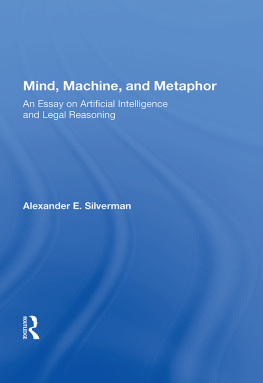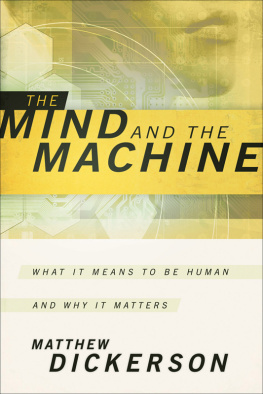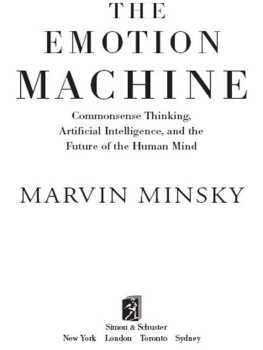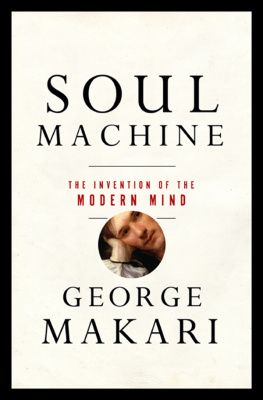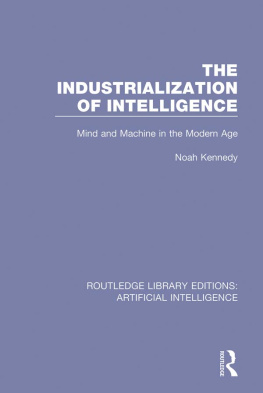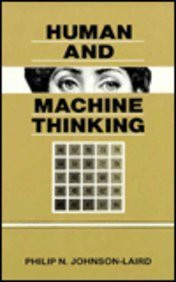Pfrehm - Technolingualism: the mind and the machine
Here you can read online Pfrehm - Technolingualism: the mind and the machine full text of the book (entire story) in english for free. Download pdf and epub, get meaning, cover and reviews about this ebook. City: London;New York, year: 2018, publisher: Bloomsbury Academic, an imprint of Bloomsbury Publishing Plc, genre: Children. Description of the work, (preface) as well as reviews are available. Best literature library LitArk.com created for fans of good reading and offers a wide selection of genres:
Romance novel
Science fiction
Adventure
Detective
Science
History
Home and family
Prose
Art
Politics
Computer
Non-fiction
Religion
Business
Children
Humor
Choose a favorite category and find really read worthwhile books. Enjoy immersion in the world of imagination, feel the emotions of the characters or learn something new for yourself, make an fascinating discovery.

Technolingualism: the mind and the machine: summary, description and annotation
We offer to read an annotation, description, summary or preface (depends on what the author of the book "Technolingualism: the mind and the machine" wrote himself). If you haven't found the necessary information about the book — write in the comments, we will try to find it.
Pfrehm: author's other books
Who wrote Technolingualism: the mind and the machine? Find out the surname, the name of the author of the book and a list of all author's works by series.
Technolingualism: the mind and the machine — read online for free the complete book (whole text) full work
Below is the text of the book, divided by pages. System saving the place of the last page read, allows you to conveniently read the book "Technolingualism: the mind and the machine" online for free, without having to search again every time where you left off. Put a bookmark, and you can go to the page where you finished reading at any time.
Font size:
Interval:
Bookmark:
Technolingualism
ALSO AVAILABLE FROM BLOOMSBURY
Critical Discourse Studies and Technology, Ian Roderick
Discourse, Technology and Change, Brenton Faber
Discourse of Twitter and Social Media, Michele Zappavigna
The Anthropology of Writing, edited by David Barton and Uta Papen
Technolingualism
The Mind and the Machine
JAMES PFREHM
Bloomsbury Academic
An imprint of Bloomsbury Publishing Plc

Contents
Figures
Tables
Do you use languagespoken, written, or signedto communicate? Do you use technology to communicate with language? If you can answer yes to one or both of these (admittedly rhetorical) questionsand were guessing that you canthen this book is for you. More specifically, this is a book about you: both the language you use and the technology you use to communicate with language.
The 200-odd pages that lie before you explore the processes and products of a dynamic interaction between language and technology, a phenomenon were calling technolingualism. And at the heart of this phenomenon, well see, lies the proposition that technology not only shapes but is also shaped by language. The flow of influence, in other words, runs both ways. On the one hand, technology can give rise to new linguistic structures, practices, and ideologies. Converselyand this other half of the story often goes unacknowledgedlanguage can also inspire technology, whether its physical shape or its operational design.
In short, technolingualism is the technological and linguistic consequences of the mutually influential relationship between language and technology.
Whats more, it turns out that you, me, and all those who can at the least read the very words of this sentence bear the sociolinguistic marks of technolingualism. We are, to put it baldly, technolinguals. For this reason alone this book is both for and about you, Dear Reader.
Our exploration of technolingualism unfolds in six stages (aka chapters), in which we consider eight game-changing technology that has impacted hundreds of thousands of speakers around the world and which, we argue, has amounted to a regeneration of language. At each stage along our investigative journey, and for each technology, we address how language both shaped and was shaped by the technology.
Ultimately, this book seeks answers to the following pair of questions:
How do language and technology interact?
What happens, to either or both, as a result of this interaction?
If these questions interest you, Dear Readerif you want to learn more about yourself and your language, and the technology that has shaped and been shaped by themplease read on.
A Technology for Forgetting, or an Argument between Two Men in Tunics
Lets go back a few millennia, to the fifth century BCE.
Our setting is Athens. Its another sweltering afternoon in the intellectual capital of ancient Greece. Socrates ambles across a cobblestone street, where he bumps into an old friend, Phaedrus. Phaedrus is giddy with excitement; he has spent the morning listening to a speech by the famous rhetorician Lysias. Socrates is eager to hear more about the speech and accompanies Phaedrus into the countryside, where the two men cool their feet in a stream and settle beneath a tree.
Please, Socrates begins, repeat to me this speech which has stirred such excitement in you.
But Phaedrus balks. My dear Socrates, surely you must know that such eloquence and wisdom, as is typical of Lysiass speeches, is impossible to repeat.
Certainly, my sweet Phaedrus. I wouldnt want to tax your poor youthful memory more than it is used to. He extends a bony finger at Phaedruss chest. But since you have brought Lysias with you, perhaps you can produce him now.
Phaedrus frowns. It would seem that the heat has gotten to you, my sweet, aged friend. Its only you and I here beneath this plane tree.
Then what is that under your garb?
Phaedrus reaches into his toga and pulls out a written copy of Lysiass speech.
Youve caught me, Phaedrus sighs. It is not Lysias himself that I carry under my wrap, but his precious words.
Socrates takes the scroll and peers at the scribbled lines. Would that you had brought Lysias instead. Tell me, sweet friend, if I ask this scroll a question, will it respond?
Surely you know that it will not.
And should I need clarification of its arguments, or should I wish to challenge its wisdom, can I do so?
Phaedrus only looks at the ground, deflated.
Dear Phaedrus, Socrates continues, this technology of yours has not only allowed you to forget the true speech, it has also cut you off from dialogue. These words that you now rely on are as silent as the stones upon the bed of this stream. Tell me, what good can come of such a discovery? What of memory, of verbal exchange, or of speaking from the heart? I tell you, sweet Phaedrus, this technology will be the end of mans intellect.
Nearly 2,500 years ago Socrates critiqued the effect that writing, as a then-modern technology, would have on Athenian intellectual society. He recognized its transformative potential. And like many people in our own time, he was skeptical of how the new technology would change social behaviors and values. As well see in the pages ahead, writing has in fact led to many changes in the ways we think and act. This extends to our language, tooboth in terms of how we actually use it and how we think about or evaluate it.
Yet Socrates failed to consider the other side of the coin: that the technology of writing has also been shaped by language itself. To this end, in the first part of this chapter well look at how linguistic structures, practices, and ideologies have acted on what Socrates, long ago, condemned as the technology for forgetting.
Writing, well show, is a powerful technology that has both informed and been informed by human language. As such, its a prime example of the nature and dynamics of technolingualism.
Writing as Technology
It might seem strange to think of writing as technology. Theres nothing electronic to it. No sophisticated assembly of mechanical parts. Yet every time you put pencil to paper, youre participating in one of humankinds grandest inventionsright up there with the wheel, the domestication of plants, and the computer.
But writing also changed our relationship to language itself. It enabled us to overcome the fleeting, unruly Writing, in other words, was the yoke our ancestors strapped onto language to bring it under their control.
As we explore the many ways that writing and language have affected each other over the centuries, well occasionally return to this writing-as-a-yoke metaphor. It serves the larger point that, like other technologies, humans invented writing in order to master realities around themin this case, language. But not just the words and sounds of language; the technology of writing afforded those who wielded it the power over language ideologies, too (i.e., the beliefs, judgments, and perceptions that speakers have about language, whether their own or the language of others).
But writing is not just a technology; its a language technology, created from and for language. The two are inherently and inextricably linked. Thus weve chosen to begin our exploration of the interaction between language and technologya mutually influential process were calling technolingualismwith writing.
What Is Writing?
In the most basic sense, writing is a way of representing spoken language through symbols. These symbols can stand for a sound, a real or imaginary object, or an abstract concept. As a representative system, writing also displaces speech in time and space. Have you ever had something you wrote, or something you said that was written down and read by someone else, taken out of context? This was probably because of the displacing effect of writing. The symbols stripped your words of their immediate context and transported them to another time and place for reinterpretation.
Next pageFont size:
Interval:
Bookmark:
Similar books «Technolingualism: the mind and the machine»
Look at similar books to Technolingualism: the mind and the machine. We have selected literature similar in name and meaning in the hope of providing readers with more options to find new, interesting, not yet read works.
Discussion, reviews of the book Technolingualism: the mind and the machine and just readers' own opinions. Leave your comments, write what you think about the work, its meaning or the main characters. Specify what exactly you liked and what you didn't like, and why you think so.


